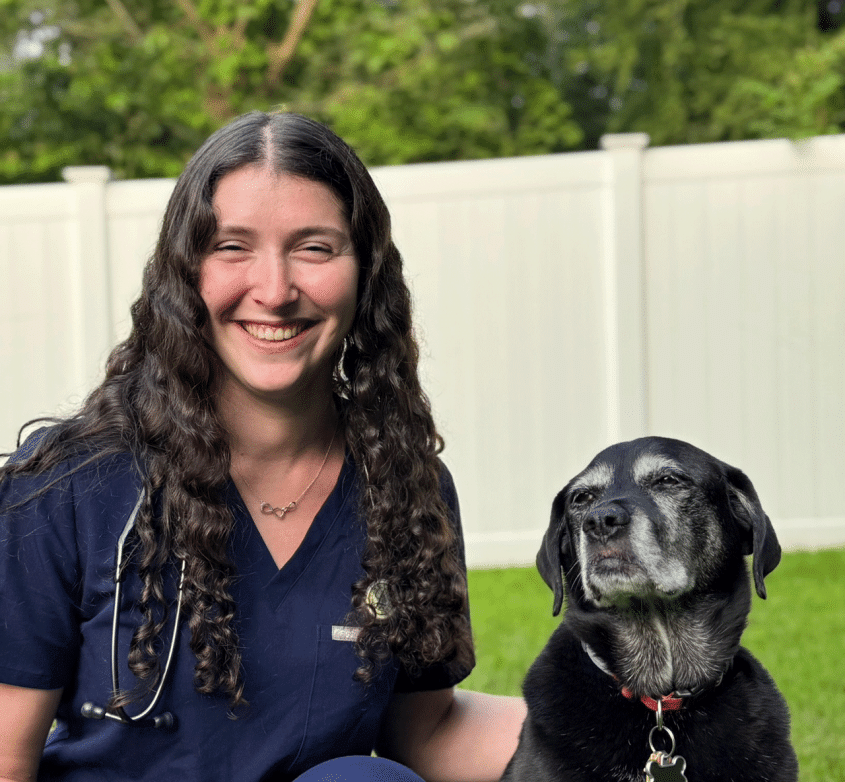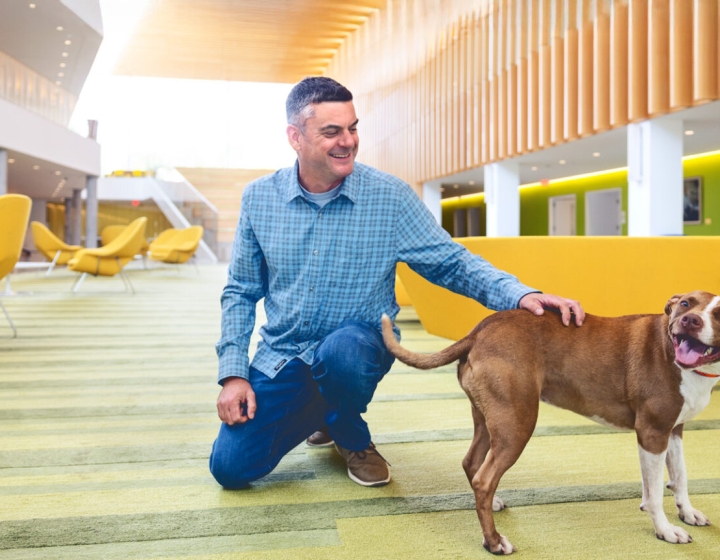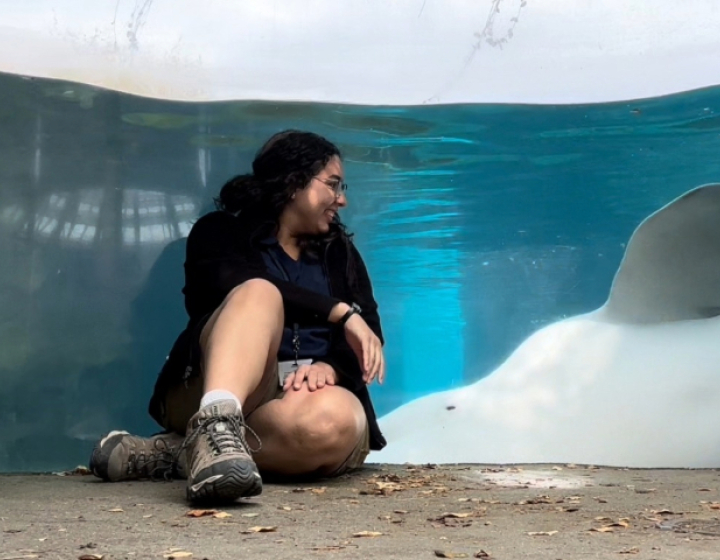CVBE alumni profile: Taylor Schmeizer, D.V.M.'25
The Cornell Center for Veterinary Business and Entrepreneurship, a partnership with between the College of Veterinary Medicine and SC Johnson College of Business, promotes excellence in veterinary business and management through education, economics research, and entrepreneurship. Launched in 2019, the CVBE now offers ten elective courses for veterinary students, as well as a Certificate in Veterinary Business and Management designed to help prepare graduates for long-term career growth across diverse career pathways. In this alumni profile series, we will be talking with some recent alumni about how the training they received through the CVBE helped their career progression.
Q: What drew you to the veterinary business courses offered by the CVBE?
Going into veterinary school, I always knew I wanted to learn more about the business aspects of veterinary medicine. Once I became a student, I joined the Veterinary Business and Management Association (VBMA) and realized that veterinary business was more than just the financial aspect of owning a practice, prompting me to seek out further education in the subject. Dr. [Jorge]Colón helped me discover this early on as well and encouraged me to take the business classes through the CVBE, which I had previously heard great things about.
Early in the CVBE curriculum, I realized that these courses provided me with an outlet outside of the science aspect of veterinary medicine and would allow me to become a more well-rounded veterinarian.
Q: What was your favorite course?
Of all the CVBE courses I took, Services Marketing was my favorite. This class had fewer than 15 students, which allowed for great discussions and more individualized feedback.
For the course, we each had to create a unique concept for a veterinary practice and use what we learned each week to further develop our idea until it was whole. This involved learning how to market a practice, how to measure customer and employee satisfaction, how to respond to feedback, and more.
This course pushed me to think more about the client experience when visiting veterinary hospitals, how the client’s perception of a visit can affect their future support of the practice, and how likely they are to comply with veterinary recommendations.
Q: What aspects of your CVBE education do you use, and how do they impact your work?
Every day I use what I learned from the CVBE courses to make sure my clients have a great experience during their veterinary visit. I push myself to think about the visit from their perspective and use that angle to guide our conversations.
I also use what I learned in the Medical Records and Informed Consent course daily when it comes to how I write my medical records and how I note my conversations with clients.
These courses have helped me be more observant each day, recognizing smaller details that are necessary to keep a practice running smoothly. As I grow in my role as an associate veterinarian, I hope to dive deeper into the veterinary business aspect of the practice where I work.
Q: What are your career goals, and how has your CVBE education supported and prepared you for those next steps?
In the future, I plan on becoming a practice owner. Prior to vet school, I thought that the only way to become a practice owner was to build a new practice. Through the CVBE, I expanded my understanding and learned about several other ways that you can become a practice owner.
The Practice Ownership course prepared me extremely well for this future endeavor, and I feel like I have the resources and knowledge to dive into this with confidence.
Through this course, I learned about a different aspect of practice ownership each week, such as marketing and the importance of a practice’s mission, the different ways to own a practice, how to create a business plan, how to finance the practice, and more.
Q: What was your certificate capstone project focused on? What knowledge and skills did you gain?
My capstone project focused on how customer satisfaction is influenced by client expectations and perceptions. My project serves as a reminder that clients value compassion, respect, clear communication, and a veterinarian who will provide explanations of their pet’s situation.
One concept that stuck out to me was that factors such as wait time did not affect a client’s experience if there was a reason communicated as to why there was a wait.
Overall, clients were much more understanding than I anticipated. Every day, I use what I learned from this project to help me keep client satisfaction high, even in difficult or emotional situations. While at times it was difficult to balance this project and clinics at the same time, I am extremely proud of my project and very happy that I pursued the certificate.
Q: What role do you think veterinary business courses play in preparing veterinarians for their careers?
Veterinary business courses help create well-rounded veterinarians. Even if you don’t anticipate being a practice owner, it is still crucial to understand the business that you work in and for. These courses teach you how to be a better communicator and how to be the best advocate for yourself and your patients within your practice.
Q: What advice do you have for a prospective veterinary student?
Do not limit yourself to one pathway in vet school; take classes throughout several departments. Even if you think you want to be a small animal veterinarian, there are still many things you can learn from classes that focus on other species or aspects of veterinary medicine, such as business courses.
Also, attend the Career Connections event each year. Networking is one of the best parts of veterinary school and can set you up for success in the future! Even if you are not interested in any of the practices that are at this event, it is a way to become more confident in how you communicate with other veterinary professionals while getting your name out there. You never know what kinds of connections other people may have!






